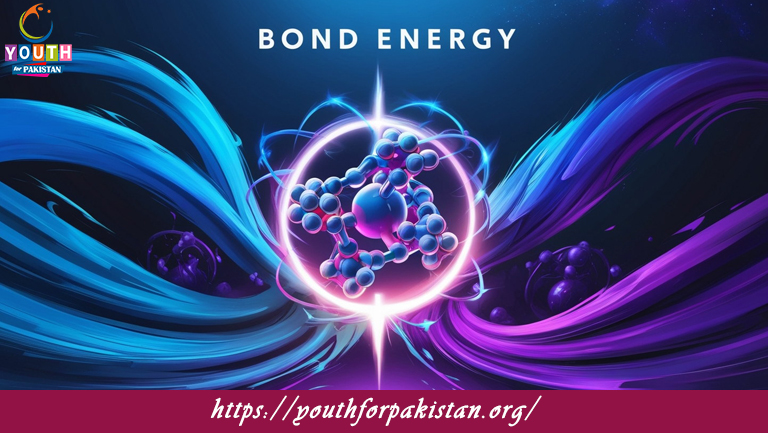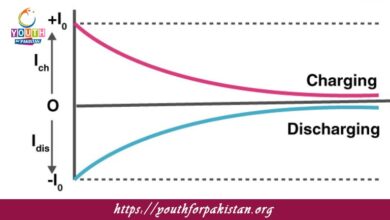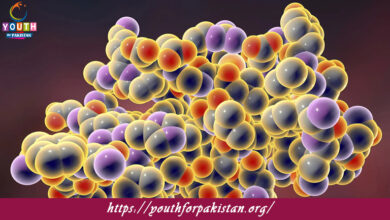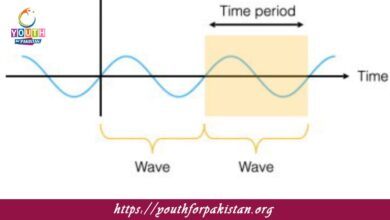Bond Energy MDCAT MCQs with Answers

Welcome to the Bond Energy MDCAT MCQs with Answers. In this post, we have shared Bond Energy Multiple Choice Questions and Answers for PMC MDCAT 2024. Each question in MDCAT Chemistry offers a chance to enhance your knowledge regarding Bond Energy MCQs in this MDCAT Online Test.
Bond energy is defined as the energy required to:
a) Form a bond between two atoms
b) Break a bond between two atoms
c) Add an electron to an atom
d) Remove an electron from an atom
Which of the following bonds generally has the highest bond energy?
a) Single bond
b) Double bond
c) Triple bond
d) Quadruple bond
The bond energy of a molecule is typically:
a) Directly proportional to bond length
b) Inversely proportional to bond length
c) Unrelated to bond length
d) Constant regardless of bond type
The bond energy of a C-H bond in methane (CH₄) is generally:
a) Higher than in ethylene (C₂H₄)
b) Lower than in ethylene (C₂H₄)
c) The same as in ethylene (C₂H₄)
d) Unpredictable
In general, the bond energy increases with:
a) Increasing atomic radius
b) Decreasing bond order
c) Increasing bond order
d) Decreasing electronegativity
The bond energy of a nitrogen-nitrogen triple bond is:
a) Higher than a nitrogen-nitrogen single bond
b) Lower than a nitrogen-nitrogen single bond
c) The same as a nitrogen-nitrogen single bond
d) Unpredictable
Which of the following bonds has the highest bond energy?
a) H-H
b) C-C
c) O-H
d) N-N
The bond energy of a molecule is used to estimate:
a) Bond length
b) Bond order
c) Heat of reaction
d) Molecular weight
In the reaction of hydrogen with oxygen to form water, the bond energy of the bonds broken is:
a) Less than the bond energy of the bonds formed
b) Greater than the bond energy of the bonds formed
c) Equal to the bond energy of the bonds formed
d) Unrelated to the bond energy of the bonds formed
The bond energy of a carbon-oxygen double bond compared to a carbon-oxygen single bond is:
a) Higher
b) Lower
c) The same
d) Unpredictable
The bond energy in a molecule generally increases with:
a) Increasing bond length
b) Decreasing bond order
c) Increasing number of shared electron pairs
d) Increasing bond polarity
The bond energy of a molecule with multiple bonds is typically:
a) The same as a single bond
b) Higher than a single bond
c) Lower than a single bond
d) Unpredictable
The bond energy of a carbon-carbon bond in ethyne (C₂H₂) is:
a) Higher than in ethylene (C₂H₄)
b) Lower than in ethylene (C₂H₄)
c) The same as in ethylene (C₂H₄)
d) Unpredictable
The bond energy of a diatomic molecule with two identical atoms is typically:
a) Lower than that of a molecule with different atoms
b) Higher than that of a molecule with different atoms
c) The same as that of a molecule with different atoms
d) Unpredictable
The bond energy of a sulfur-hydrogen bond compared to a sulfur-oxygen bond is generally:
a) Higher
b) Lower
c) The same
d) Unpredictable
The bond energy in a molecule with multiple resonance structures is:
a) The same as the individual bond energies
b) Average of the individual bond energies
c) Higher than the individual bond energies
d) Lower than the individual bond energies
The bond energy of an O-H bond in water (H₂O) is generally:
a) Higher than in hydrogen peroxide (H₂O₂)
b) Lower than in hydrogen peroxide (H₂O₂)
c) The same as in hydrogen peroxide (H₂O₂)
d) Unpredictable
The bond energy of a hydrogen-halide bond generally:
a) Increases from HF to HI
b) Decreases from HF to HI
c) Remains constant from HF to HI
d) Unpredictable
The bond energy of a carbon-nitrogen bond compared to a carbon-carbon bond is:
a) Higher
b) Lower
c) The same
d) Unpredictable
The bond energy of a bond between two atoms with similar electronegativities is generally:
a) Higher than a bond between atoms with different electronegativities
b) Lower than a bond between atoms with different electronegativities
c) The same as a bond between atoms with different electronegativities
d) Unpredictable
The bond energy of a bond in a molecule with a high bond order is:
a) Shorter and weaker
b) Longer and stronger
c) Shorter and stronger
d) Longer and weaker
The bond energy of a molecule is related to its:
a) Bond length
b) Molecular weight
c) Atomic radius
d) All of the above
The bond energy of a carbon-hydrogen bond in methane is generally:
a) Lower than in ethyne
b) Higher than in ethyne
c) The same as in ethyne
d) Unpredictable
The bond energy in a molecule with a single bond is typically:
a) Higher than in a double bond
b) Lower than in a double bond
c) The same as in a double bond
d) Unpredictable
The bond energy of a bond in a molecule with an expanded octet is typically:
a) Higher than in a molecule with a complete octet
b) Lower than in a molecule with a complete octet
c) The same as in a molecule with a complete octet
d) Unpredictable
The bond energy of a hydrogen-hydrogen bond in H₂ is:
a) Higher than in HCl
b) Lower than in HCl
c) The same as in HCl
d) Unpredictable
The bond energy of a chlorine-chlorine bond compared to a fluorine-fluorine bond is:
a) Higher
b) Lower
c) The same
d) Unpredictable
The bond energy in a molecule with a central atom having lone pairs is generally:
a) Higher
b) Lower
c) The same
d) Unpredictable
The bond energy of a bond between atoms of different sizes is typically:
a) Higher than a bond between atoms of the same size
b) Lower than a bond between atoms of the same size
c) The same as a bond between atoms of the same size
d) Unpredictable
The bond energy of a nitrogen-oxygen bond compared to a nitrogen-nitrogen bond is:
a) Higher
b) Lower
c) The same
d) Unpredictable
The bond energy of a sulfur-sulfur bond compared to a sulfur-oxygen bond is generally:
a) Higher
b) Lower
c) The same
d) Unpredictable
The bond energy of a double bond compared to a single bond is:
a) Higher
b) Lower
c) The same
d) Unpredictable
The bond energy of a bond in a molecule with a partial positive charge is generally:
a) Higher
b) Lower
c) The same
d) Unpredictable
The bond energy of a bond in a molecule with a high dipole moment is:
a) Higher than a bond with a low dipole moment
b) Lower than a bond with a low dipole moment
c) The same as a bond with a low dipole moment
d) Unpredictable
The bond energy of a carbon-fluorine bond compared to a carbon-chlorine bond is generally:
a) Higher
b) Lower
c) The same
d) Unpredictable
The bond energy of a bond in a molecule with an unpaired electron is typically:
a) Higher
b) Lower
c) The same
d) Unpredictable
The bond energy of a bond between two atoms with different electronegativities is typically:
a) Higher than a bond between atoms with similar electronegativities
b) Lower than a bond between atoms with similar electronegativities
c) The same as a bond between atoms with similar electronegativities
d) Unpredictable
The bond energy of a bond in a molecule with a high symmetry is:
a) Higher
b) Lower
c) The same
d) Unpredictable
The bond energy of a carbon-carbon single bond compared to a carbon-carbon double bond is:
a) Higher
b) Lower
c) The same
d) Unpredictable
The bond energy of a bond in a molecule with a high polarizability is:
a) Higher
b) Lower
c) The same
d) Unpredictable
If you are interested to enhance your knowledge regarding Physics, Chemistry, Computer, and Biology please click on the link of each category, you will be redirected to dedicated website for each category.





